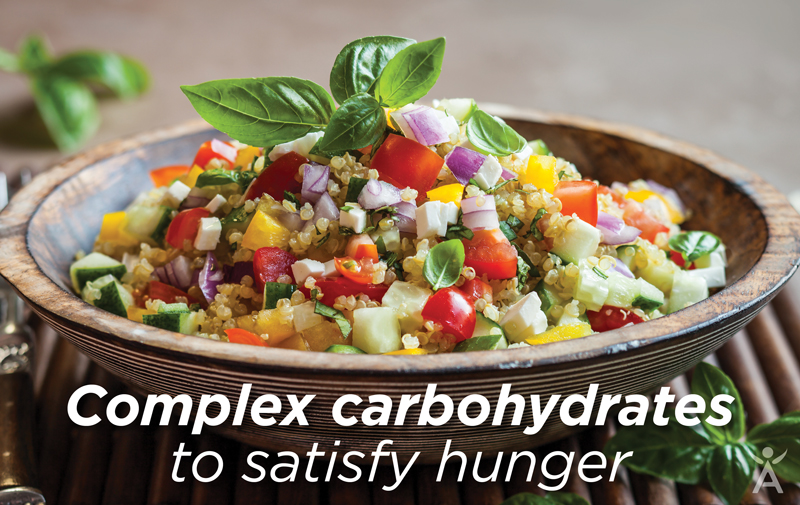Our bodies are made up of approximately 60 percent water. The fluids we put in our 
Hydration and replenishment requirements will vary from person to person, depending on size, sex, activity level, climate and health status and are often confusing to understand (1, 4). Determining the best sources of ‘fluid energy’ is essential for everyday health and athletic performance.
So, lets take a look and examine the components of fluid energy.
Bursting The Water Bubble
Perhaps you’ve heard that unless you drink eight to ten glasses of water a day, on top of all the other beverages and foods you consume, your hydration and performance will be suboptimal. This notion has been scientifically proven untrue. Recent studies, including one published in the Journal of Food and Nutrition Sciences, scientifically confirm fluids other than water to provide superior hydration and rehydration that counts towards overall daily water intake. Fluids that contain carbohydrates and electrolytes supplement and replace energy burned and minerals depleted, such as sodium, potassium and magnesium, key factors to enhanced performance and maximum bodily functioning (1, 5).
Water is essential for survival and a perfect thirst quencher but water is not the perfect electrolyte replenisher. If an athlete is dehydrated and drinks only water to rehydrate, they can potentially turn off their mechanism of thirst before proper rehydration is accomplished (5-7).
Fluid Foods
We become hydrated through three sources: water, food and metabolic water production (3). Foods provide varying degrees of water to the body and yes, you can actually ‘eat your water’ to be optimally hydrated. Vegetables and fruits such as lettuce, celery, tomato, cucumber, melon and citrus all contain high percentages of water. Dairy products, including kefir, yogurt and shakes, are also water dense vehicles acting to replenish and hydrate the body. Foods that contain high percentages of water and that contain electrolytes and micro- and macro-nutrients, rank higher than plain water for rehydration, especially after exertion or extended durations in warm environments (5-8).
Welcome Whey
Whey protein shakes consistently prove to be an excellent alternative for optimal hydration. These shakes also efficiently rehydrate an individual due to their high ratio of natural electrolytes, carbohydrates and proteins and because of their effects on prolonging satiety. Whey protein also provides a complete amino acid profile critical for muscle protein synthesis and for optimal lean body mass. Scientific reviews of whey protein have reported it to be one of the best sources of branched-chain amino acids, which enhances athletic performance, helps to regulate glucose metabolism, aids in weight loss, promotes greater muscle growth and increases the retention of muscle tone (8).
What Else Counts?
The Journal of the American College of Nutrition published a study measuring the impact various fluids have on hydration. Healthy males received different beverages, including water and juice. This urine was tested for biomarkers of hydration and dehydration status. All of the men, regardless of the beverage consumed, were found to be adequately and equally hydrated. Regardless of what you drink, if water is a component, you are actively hydrating your body (9).
The Bottom Line
An easy rule of thumb to follow is to drink so that you never find yourself thirsty. By doing so, you are ensuring that your body will not have to play hydration catch-up after every activity. Consume plenty of fluids, fresh fruits and vegetables throughout your day. Put your IsaLean® Shake, IsaPro®, Ionix® Supreme, and e+ to work. These products hydrate the body and replace depleted electrolytes in a capacity that also sustains energy and satiety. Enjoy the process of mastering your fluid energy intake and always drink to your best health.
References
- Von Duvillard S et al. Fluids and hydration in prolonged endurance performance. J Nutr 2004;20: 651-656.
- The World Health Organization. Diarrhoeal disease fact sheet. 2013:330.
- Nissensohn M et al. Assessment of beverage intake and hydration status. Nutr Hosp. 2015;31:62-69.
- Lafontan M et al. Opportunities for intervention strategies for weight management: Global actions on fluid intake patterns. Obes Facts. 2015;8:54-76.
- DeNyssche C et al. The Physiological effects of Gatorade versus diluted fruit juice during exercise: A preliminary study. J Food and Nutr 2014;1.
- Murray B. Preventing dehydration: Sports drinks or water. Gatorade Sports Science Institute. (doi: 06.2015).
- Maughan J et al. Fluid replacement in sport and exercise: A consensus statement. Br J Sports Med. 1993;27:34-35.
- Pegoretti C et al. Milk an alternative beverage for hydration. Food Nutr Sci 2015;6:547-554.
- Tucker M et al. Hydration status over the 24-H is not affected by ingested beverage composition. J Am Coll Nutr 2015; 19:1-10.
- Lafontan M et al. Opportunities for intervention strategies for weight management: Global actions on fluid intake patterns. Obes Facts, 2015; 8:54-76.
- Lucas M et al. Coffee, caffeine, and risk of depression among women. Arch Intern Med 2011; 26:1571-1578.
- Rustenbeck I et al. Effect of chronic coffee consumption on weight gain and glycaemia in a mouse model of obesity and type 2 diabetes. Nutr Diabetes2014;4:6-30.
- Masento N, Golightly M, Field DT, Butler LT, Van Reekum CM. Effects of hydration status on cognitive performance and mood. Brit J of Nutri. 2014. 111 (10) 1841-1852.
- Lafontan M. Hydration for health. Euro J Obesity. 2014. 10. (1159).
- Perrier ET, Armstrong LE, Daudon M et al. From state to process: Defining hydration. Euro J Obesity. 2014.
- Borys JM, Ruyter JC, Finch H et al. Hydration and obesity prevention. Euro J Obesity. 2014.





